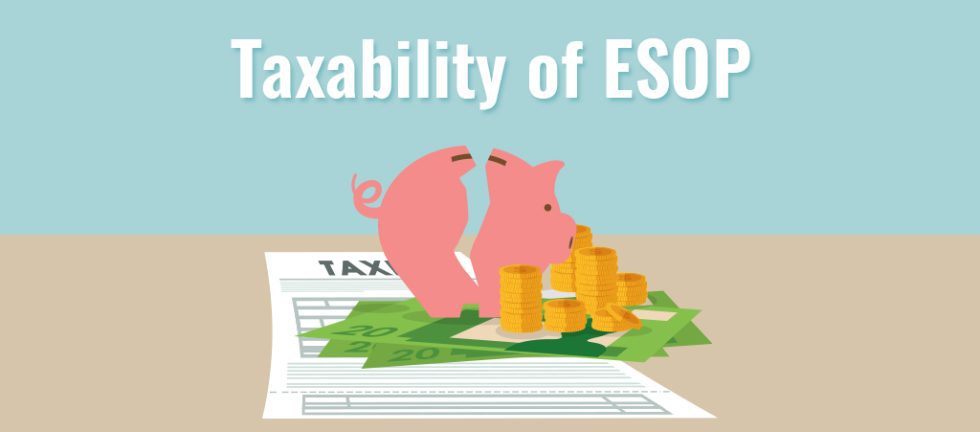Taxability of ESOP
Employee Stock Option Plan (ESOP) is a scheme under which employees of a company are given the option to acquire shares of the company in which they are employed. Under this scheme, the employees get rights, for the prescribed period of time, to own the shares of the company they work in at a discounted price as compared to the market price of the shares.
# Taxation of ESOP
Taxation of ESOPs is done at two stages:
1. When the employee exercises the option to buy shares from the company at a discounted price as compared to the market price.
2. When he sells these shares
# Taxation on Exercising ESOP
The options owned by an employee by exercising ESOP scheme are taxed as perquisites to the employees. For this, the difference between the exercise price and market value of the shares is treated as perquisites given to the employees. The rate at which these are taxed depends on the slab rate under which the employee falls. The employer is required to deduct tax at source treating the same as a prerequisite.
# Taxation on disposing off the ESOP options
The second stage when the employee will be taxed for the shares he obtains from the employee stock ownership plan scheme is when he sells these shares. Such sale of shares will attract capital gain tax.
The capital gain tax will depend on the duration for which the employee has held the shares before selling. Based on this duration, the capital gain of these shares will either be a Long-term gain or short-term gain. Taxation of both types of gains is different. Hence it is important to segregate the profits as long term or short term.
Read Also: Key Feature of an ESOP Scheme
Holding requirements for long-term and short-term capital gains
Listed shares are long term if they are held for more than one year before selling them. Unlisted shares become long-term after three years of holding them. Any share that is held for lesser time than these is considered to be short-term.
Taxation of these shares on selling
1. Traded through the platform of the stock exchange:
Long-term capital gain is exempt from tax if below Rs. 1 lakh and is taxed at 10% if capital gain is over Rs 1 lakh.
Short term capital gain on these shares is taxed at flat 15%.
2. Not traded through platform of stock exchange:
Short term gains are treated like any other income and taxed at the applicable slab rate for the employee.
Long-term gain is calculated by calculating indexed value of cost of purchase of these shares and the indexed gain is taxed at flat rate of 20% plus surcharge and education cess.
Read Also: ESOP Benefits for Employees
# Taxation of Foreign ESOPs
If ESOP is availed by an Indian resident in any foreign company, it is taxable in India. The concessional tax rate of 10% and 20% on long-term and short-term capital gains respectively on such shares will not be offered to the employee. This is because these shares cannot be sold through stock exchange as they are not likely to be listed in India.
Thus, taxation of ESOP can be summarized as below:
- When an employee exercises the option, the difference between the market value and the exercise value is treated as the prerequisite and will be taxable according to the tax bracket the employee falls under.
- When an employee sells the shares, the profit he earns is considered as capital gains.
- If the employee sells the shares through stock exchange within one year, 15% tax is levied against the capital gains. If the employee sells the shares after one year they are considered long-term assets and are not taxable up to Rs 1 lakh and at 10% beyond that.
- Else, short-term capital gains and will be added to the income of the employee and taxed according to the tax bracket he falls into after that. If capital gains are long-term, 20% tax will be levied with the benefit of indexation.


